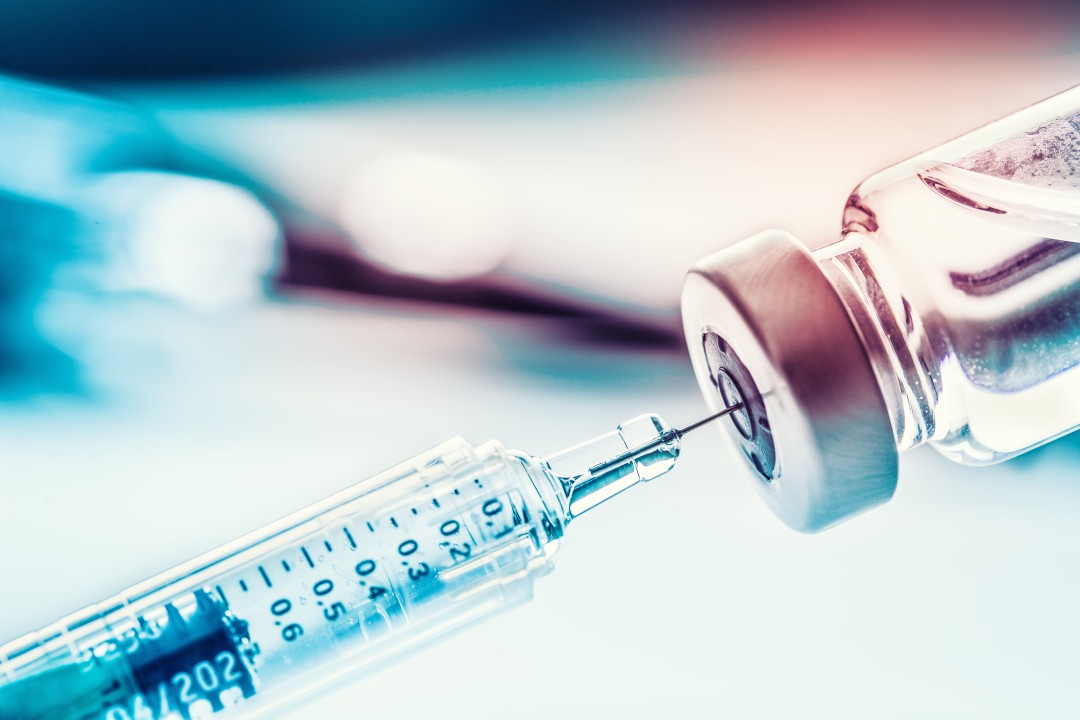The Covid-19 vaccine is a major breakthrough, but we need to maintain infection control within hospitals to beat this pandemic


The launch of the first Covid-19 vaccine in the UK last week represents a major achievement not just for the scientific community, but it is testament to global co-operation in a time when we most need it.
The mass roll-out of the vaccine, which started last Tuesday, represents a huge logistical challenge, but it will transform our fight against the coronavirus pandemic. Trials of the vaccine show that it will offer up to 95% protection against the virus – something which NHS staff have dubbed it a ‘game changer’. Assuming the roll-out goes according to plan across the world, it will allow Governments to look beyond vaccinations and focus on the next stage of the fight, including how best we can return to some form of normality in the hopefully not-too-distant future.
Whilst this is obviously a fantastic breakthrough and provides us with genuine optimism (a rarity in these difficult times), it is crucial that we maintain our focus and avoid complacency at such a crucial stage in the battle.
As I have touched on, the vaccine roll-out will present a major challenge for the healthcare sector, with upwards of 20 million of the UK population due to receive the injection in the coming months, 4 million of which will be completed before the new year. With hospitals representing a primary location for vaccinations, that will mean dramatically increased footfall to hospital sites across the UK, and therefore potential exposure to hospital-acquired infections (HAIs), including Covid-19 itself. The Telegraph recently published an in-depth investigation that looked at this issue by analysing statistical data of thousands of patients who have been admitted to hospital in recent months.
Last week, I joined a virtual get-together for members of the Infection Prevention Society, an organisation dedicated to providing infection control within healthcare settings. It was a chance to see first-hand the emotional and personal impact that Covid-19 has had on its members, and it emphasised to me how importance it is we get this right.
The last thing we need is for vaccine-patients to be exposed to infection whilst they are getting the jab.
Throughout this pandemic, the NHS and other healthcare organisations have put in a heroic effort to stem the tide, care for our loved ones and help keep our country going – we cannot thank them enough for that and we will remember such sacrifice for generations to come. We have worked with a number of NHS Trusts this year to provide PPE support as well as decontamination and infection control relief, so we understand the pressure they have been under and the huge feeling of relief that this vaccine will provide.
What we need to do now is continue that world-class level of care and commitment by keeping on top of infection control within hospitals during what will be a very pressured period.
The Centre for Evidence-Based Medicine released research at the start of last month which showed that 17.6% of Covid-19 infections “fit the NHS England definition of probable healthcare-associated infections”, a figure that is as high as 25% in the North West. A similar study by King’s College London found that one-eighth of Covid-19 hospital patients contracted the virus whilst already in hospital.
Such figures suggest that there may be a small portion of those due to receive a vaccine who will contract Covid during the process. What we need to ensure is that there are measures in place to reduce this risk.
In order to tackle the vaccination challenge, it is likely that hospitals and GP surgeries will draft bespoke schedules and planning to ensure swift, efficient and safe vaccination process. Part of the scheduling process should include decontamination. For example, in between every vaccine, the room interior should be fully decontaminated, preferably with validated UV-light systems. The chairs and surrounding furniture where vaccines are provided should also be manually cleaned in between each patient. Lastly, a full clean should be undertaken at the end of each day to fully decontaminate the room, ready for the next batch of patients the following day.
This is not to say that NHS hospitals aren’t undergoing such a process already – I’m sure that every Trust has a dedicated plan in place and are fully committed to ensure HAIs are as low as possible during this period.
After an incredibly tough year, there at last seems like there’s light at the end of the tunnel. As we enter such a critical phase of our fight, it is vital we avoid complacency, maintain our focus and ensure that the vaccination process is completed without increasing the risk of infection within hospitals.





